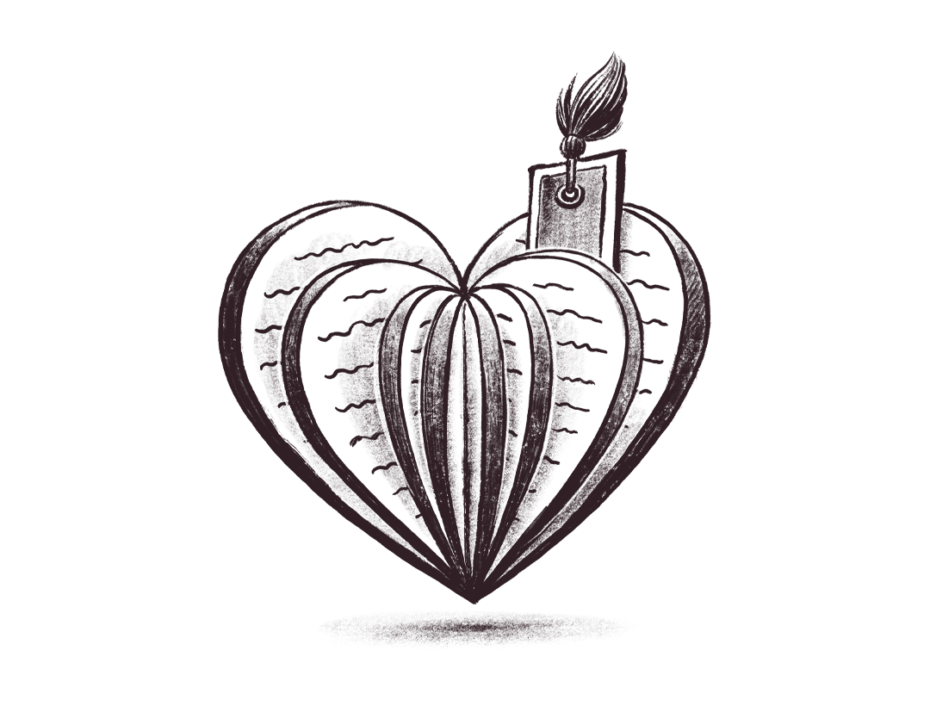Keith’s lived experience of suicide interview

This is an interview with Keith (he/him). He has shared his lived experience of suicide with us. Please consider if you are ready to read about sensitive topics, including suicide and sexual violence. If you feel like you want to stop reading, there is a Quick Exit button on the top right of this page.
You can read other lived experience stories here.
What would you like us to know about you?
I’m a sensitive soul. I don’t like capitalist society and I don’t like the culture that is the norm. I’m an Indigenous person from the Barkindji Nation. I know from my old people through oral history, that queer people always had a place in our society and in some tribes, they were known to be healers and/or deal with conflicts. They would be able to walk between two worlds – two genders – without the discrimination we see today in colonial and religious societies.
I don’t fit into the status quo, and this sets me apart from other people participating in it. I’m here and yet the colony continues with its standards and indoctrination.
I don’t really understand how to adult very well, so it’s difficult to participate in this society. I don’t look in the mirror anymore and I hate photographs. I think this is because I don’t have high self-esteem – I think it’s moderate. I know my strengths and my weaknesses, and I think this comes with being a natural observer.
I haven’t always been a natural observer. From the age of 24 I was no longer interested in superficial things, and I became quite reserved but more observant. I don’t know whether this was because of using substances from an early age, all I know is that I had grown into a different person, I had different ideals and no longer felt I fit in.
I began trying to find my tribe, but I couldn’t fake it. I became a hermit and could only socialise when I was drunk. I’m still like this today. I don’t like big crowds and I hear things more acutely. I have a very active mind and I think this is where poetry helps me because I’m able to put my thoughts down in front of me and tease them out, rather than have them rush through my mind.
Why do you think suicidal thoughts started for you?
I think suicidal thoughts started pretty early on. I first remember having them when I was 18 years old. This is around the time I told my mother about my stepfather sexually abusing me. The feeling was pretty intense, so much so that I spent the next few years in psychiatric wards for suicidal attempts. I guess thinking back, cutting my wrists was more a cry for help than actually wanting to kill myself. Other times, though, I could be found at the infamous ‘Gap’ on the east coast of Sydney sitting there, drinking and contemplating my life. Many times, a concerned member of the public would see me and, unbeknownst to me, ring 000.
Do you feel overwhelmed by these thoughts? Are they passively in the background of your day-to-day life?
I’m neurodivergent with mental health issues, so while the thoughts can sometimes feel overwhelming, I’d say for the most part, they are just in the background.
Some days are worse than others, though, and mornings are always deathly for me. The thoughts can feel overwhelming when I’m not mentally well and/or saturating my body and mind with substances.
Are these thoughts always negative? Can they be a source of comfort? Are they always about death?
I guess I’m curious about death, I’m curious about suicide. I wonder what it would feel like if I do decide to leap off a cliff or have a drug overdose. I wonder, would I regret it in the last seconds of my life? I wonder if, like in a movie, you have flashbacks of your past?
The thoughts are a source of comfort more often than negative, but I have a yearning to finish this life knowing I did something in the world for the better. I guess this is what keeps me going, knowing that I truly believe I can make a small change.
Have you accessed any crisis services, and what was that experience like? Have you accessed any mental health services, and what was that like?
Yes, I have in the past. The waiting times to see a doctor can be pretty ridiculous. I have accessed the various supports at St. Vincent’s Hospital and they have been pretty good to me. I can only speak on two services, the Panda Unit and Gorman House Unit. Both are crisis services for detox from drugs and alcohol and overall, the staff are great. They are caring, with a lot of compassion and understanding. I see a counsellor once a week through victim services and we have continued our sessions once a week for the past three years.
I have called Lifeline and 13YARN, and, as a blackfulla, I prefer the latter. I don’t feel stigmatised as much as when I call the former. There is a real fear when speaking to crisis services because in order to speak about your emotions, you have to be careful not to say you’re suicidal because you know where you’ll end up: scheduled. This is where you are under the care of the hospital but also the security guards. For the most part, it’s unnervingly awkward as they speak to their colleagues while keeping a diligent eye on you 24/7. This isn’t therapeutic for me and kind of makes me feel worse. Like a criminal.
In what ways have you had to self-advocate when seeking support?
I’d say I have advocated for myself 99% of the time, as I’m usually the only one there in that position. You have to advocate for yourself when you want to leave. You have to convince medical staff that you are no longer suicidal and then make arrangements for the community team to come visit you at your house. Overall, it’s very stale. Especially if you live in share accommodation and they come on the weekends unannounced. I didn’t appreciate this part considering they had my number. At the end of the yarn, they referred me back to the same services that I had accessed before, so it didn’t feel helpful in any way.
How do you feel about “suicidal” being a part of your identity?
I’ve never really thought about it being a part of my identity until now. I suppose it is. I think it’s a natural emotion to feel at certain times in anyone’s life, surely. I don’t judge it – it just is and I’m okay with that. I think if you can think about death, you can also think about life. While I write this, obviously I’m not suicidal at present but thinking back on the times I have been, it’s hard to see the beauty of the world and your place in it when confronted with strong feelings of letting life go.
What are your thoughts about how stigmatised suicide is, and how stigmatised people with experiences of suicide are?
I think people don’t talk about it enough. It’s taboo to talk about this subject which I find pretty weird considering us humans are able to process information. Instead, people either go into an ‘I can’t deal with this’ mode, or a saviour complex, thinking they can save you.
A lot of times, people say, ‘Think about your family, your loved ones’, and some even go as far as to say that it’s ‘selfish’. I think people have the right to have autonomy over their lives.
Have your experiences with suicide transformed you?
I think they have because I wouldn’t be the person I am today if I hadn’t experienced suicidality. It has transformed the way I think about myself and over time it has become my friend. To know that I have absolute control over my life, to live or to end it if I so feel.
How have other people’s experiences with suicide affected you?
They have affected me greatly but what I have come to realise is that they are no longer in pain. I feel compassion and if they felt at that particular time to end it, it’s their right. I think there’s many overarching reasons why we feel this way and why they acted on it. It’s a pretty heavy burden to carry when you’re in that much pain and I think there could’ve been many preventatives before the person made this decision. I think because of the stigma, they felt that this was their only option.
Is there any advice you would give to someone experiencing suicide?
I would assist with material aid, ask them if I can sit with them, talk with them over the phone. Tell them not to judge the feeling and that it’s perfectly normal to feel this way. Ask them what they need, if they need anything at all. I would mainly just listen to them. I would assure them that they are not alone in this feeling and that I will not call 000 if they don’t want me to.
Is there any advice you would give to the people who are supporting someone experiencing suicide?
To treat the person like anybody else and to practice Dadirri which is an Indigenous practice of deep listening.
Is there any advice you would give to people who work in crisis and/or mental health services about how to talk to people experiencing suicide?
What I’ve mentioned above and not to be overly clinical with them. To treat them as they would a friend or loved one and find common interests to build rapport and to open further dialogue with the person experiencing suicidality.
What do you think of peer-to-peer support for people who have experienced suicide?
I think that peer-to-peer support can work with supervision from a clinical team to ensure professionalism while also supporting the person from a lived experience. Supervisors must be able to accept people from all walks of life, not to talk too much about their stories, and also practice Dadirri.
Have you found a community of care with other LGBTQ+ people?
I have found mutual aid networks within the abolition spaces. They are all queer and I find them very understanding and accepting.
